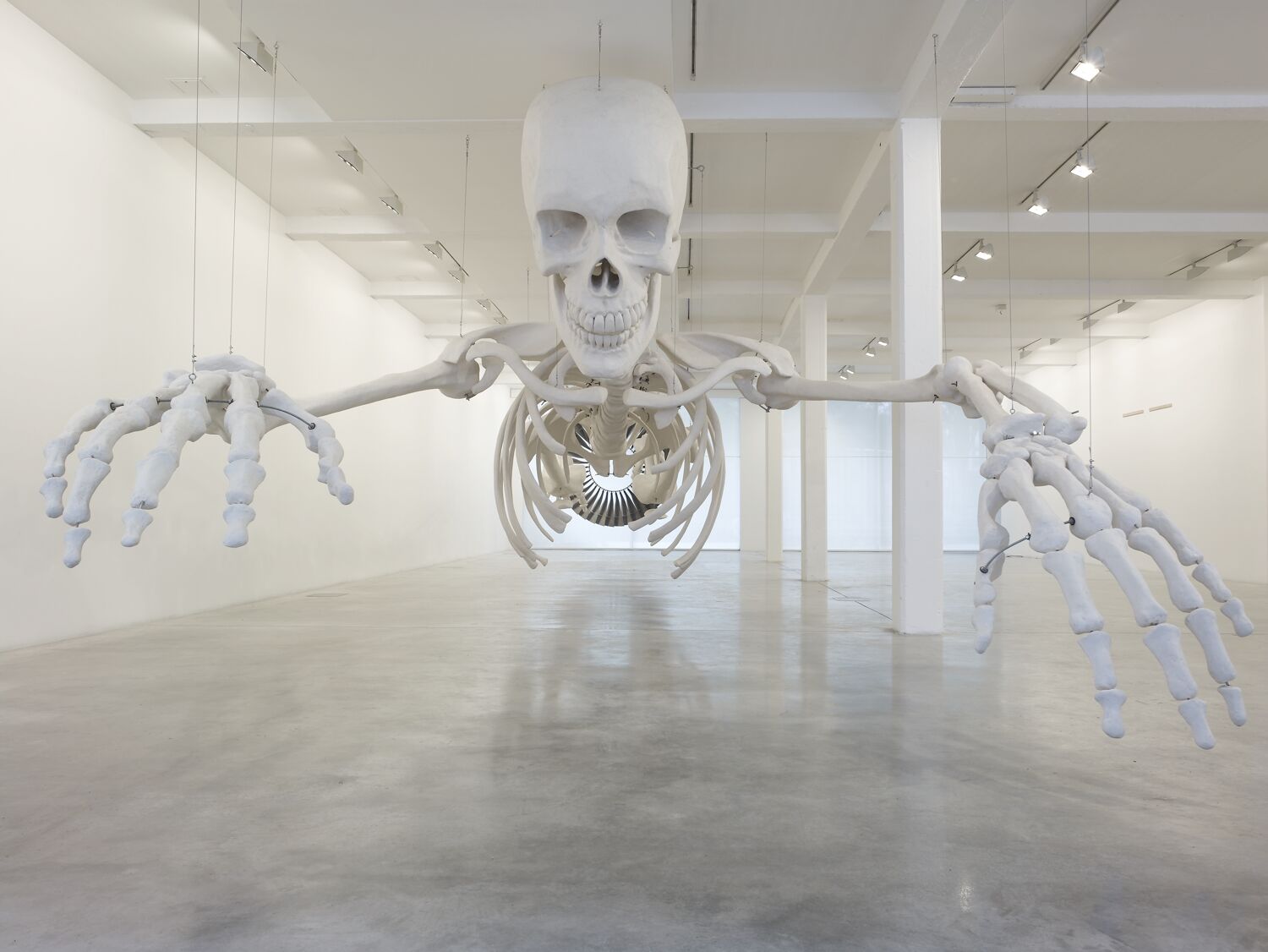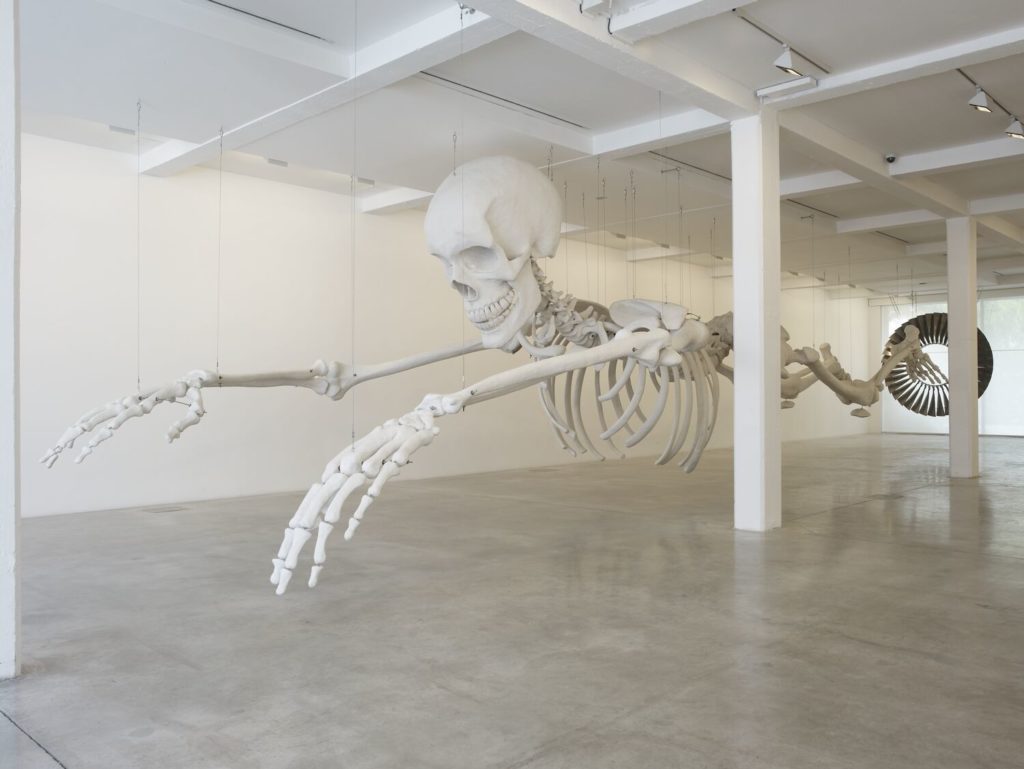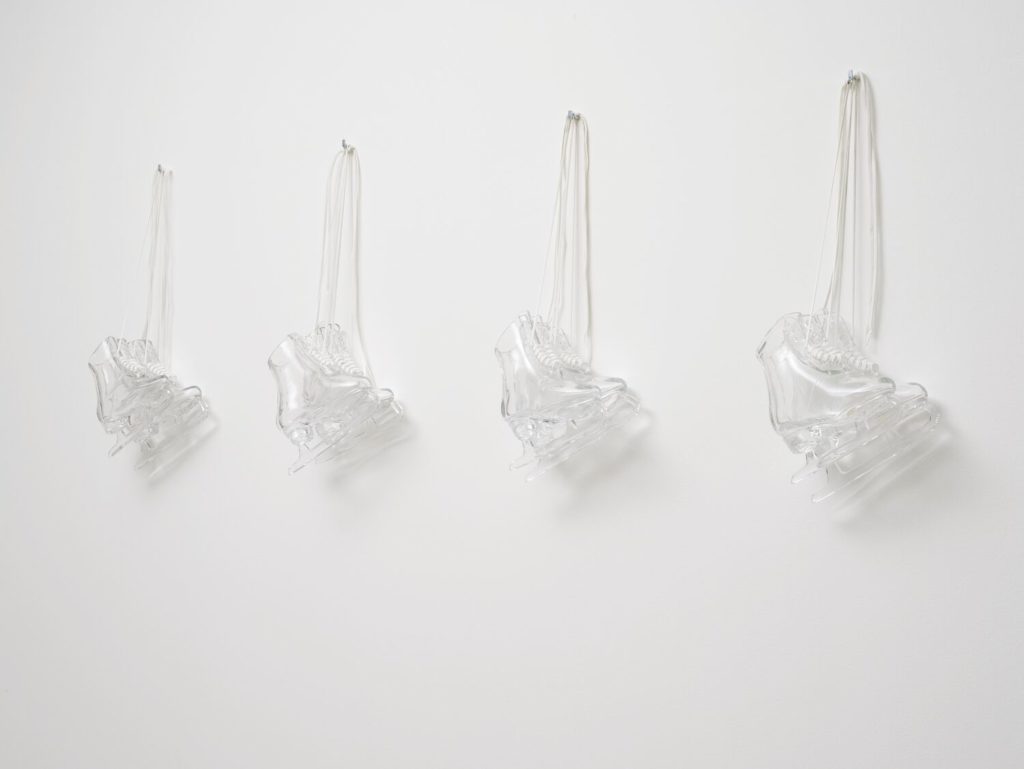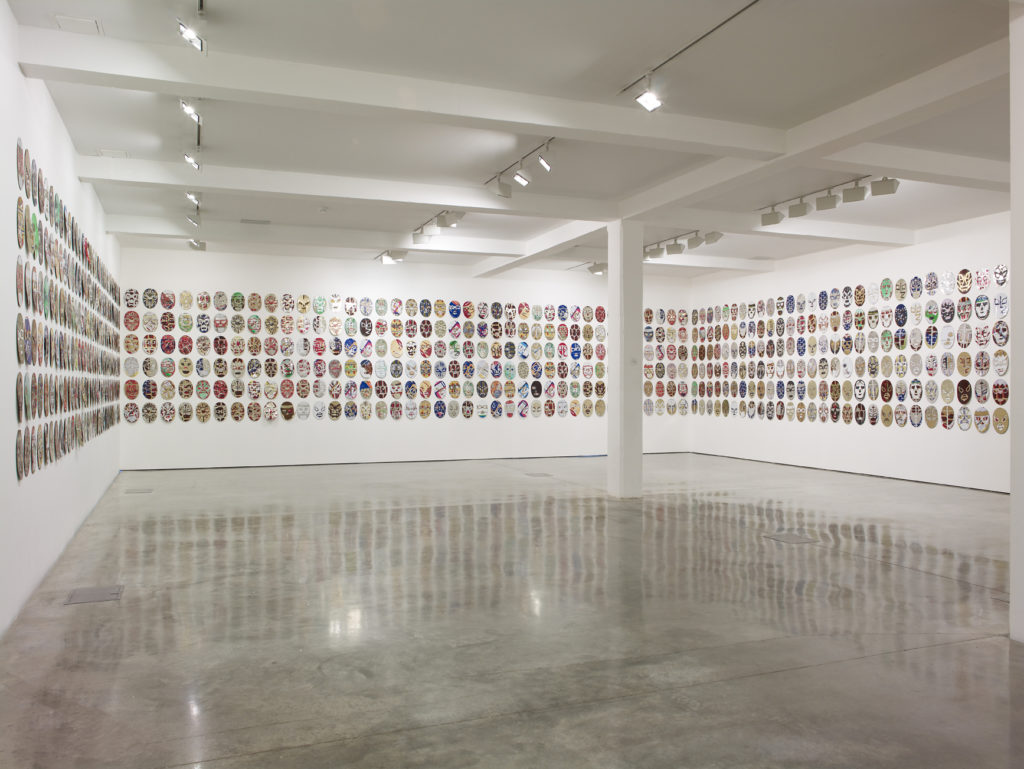
Adel Abdessemed: Silent Warriors
22 September - 21 November 2010
Parasol unit foundation for contemporary art is delighted to present the first solo exhibition dedicated to the work of Adel Abdessemed in London. Working across a wide range of different media, including sculpture, installation, video, photography and drawings, Abdessemed passionately tackles difficult subject matter and taboos within society and presents them as naked truth. Yet beyond their often challenging and provocative appearance, his works embody the fragility of life and are deeply imbued with beauty and poetry. Abdessemed’s exhibition at Parasol unit highlights precisely the vulnerability and aesthetic sensitivity in the work of this important twenty-first century artist.
Silent Warriors is organised around two of Abdessemed’s major works. In the ground floor gallery, Habibi, 2003, a 17-metre human skeleton made of fibreglass hangs horizontally from its spine together with an aeroplane propeller. Occupying the first floor is a new installation entitled silent warrior, which comprises over 800 colourful masks made from found and discarded empty tin cans, once used in Africa to contain food provisions or industrial and poisonous materials.
According to the artist, Habibi, which is the Arabic word for the masculine form of address for my beloved, is a self portrait. As he notes: I have often said that Habibi was a self portrait because I like to think when I am lying on the floor, unlike Giacometti’s Man Walking or Rodin’s Thinker or a Buddha. I do my thinking laid flat out on my stomach in a position that resembles taking off or hovering.[1] A metaphor for passage, the propeller offers a threshold between life and death and provides the vital propulsion for the piece.
Silent Warriors also includes other works, such as ALSO SPRACH ALLAH, 2008; Enter the circle, 2009; the sculptural piece Music box, 2009, which plays a brief excerpt from Wagner’s opera Die Walküre (The Valkyrie); and Moscow (five sisters), 2010, another new installation. Moscow (five sisters) is made of clear hand-blown glass and consists of five pairs of skates modelled on ice skates used by Russian figure skaters. All these works reflect Abdessemed’s ongoing exploration of ideas surrounding violence, truth and beauty.
An exhibition catalogue with insightful essays by Ziba Ardalan, Gilane Tawadros and Guy Tortosa will be published and distributed worldwide.
[1] ‘Adel Abdessemed in conversation with Elisabeth Lebovici’, À l’attaque, JRP Ringier, April 2007, p. 165.




